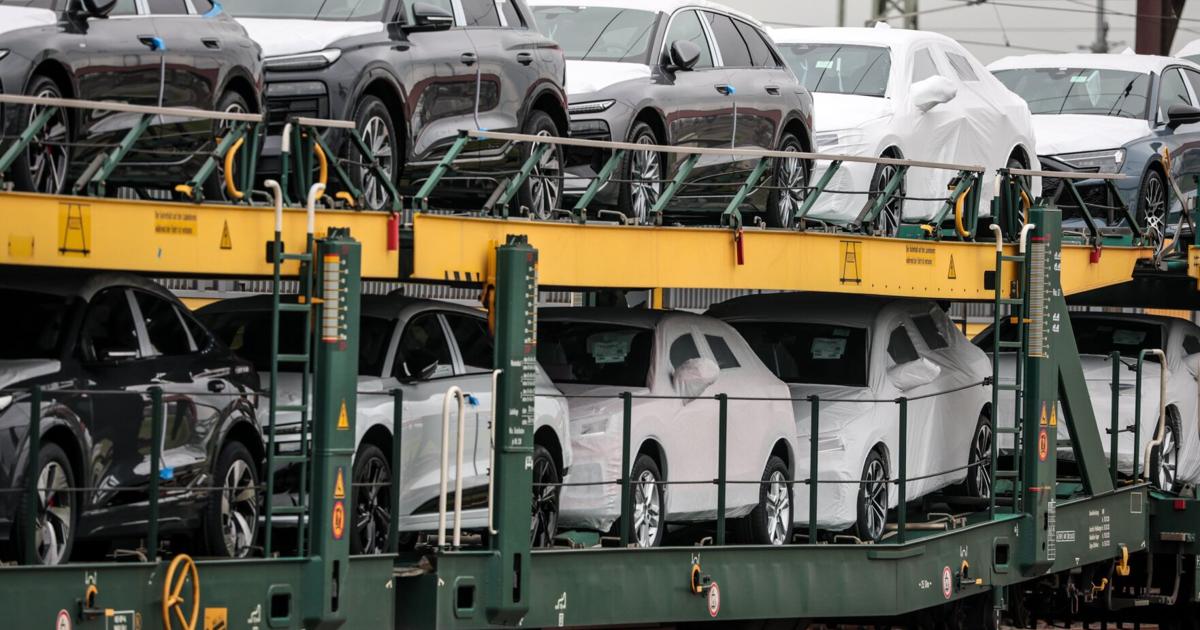U.S. President Donald Trump is expected to sign an executive order easing the impact of his universal auto tariffs on Tuesday, but Canadian industry officials warn that the changes won’t remove the threat to jobs or companies in this country.
The executive order, first reported by the Wall Street Journal late Monday, is expected to say that parts tariffs coming into effect May 3 won’t be “stacked” on top of other levies, including on steel and aluminum. The move will also be retroactive, the Journal reported, meaning that automakers could be reimbursed for tariffs already paid. The Journal also said that auto manufacturers will get a partial remission of the tariffs on parts.
Despite the remissions and the fact that tariffs won’t be stacked on top of steel and aluminum tariffs already in place, a parts tariff still poses a serious threat to Canadian companies and workers, said the head of an industry association.
“It appears that the president is preparing to counter the U.S. auto industry’s written request to remove the tariff threat on cars from Canada by making partial measures,” said Flavio Volpe, CEO of the Automotive Parts Manufacturers’ Association. “Partial measures that eat profits up and risk insolvency are not acceptable, the right level is zero tariffs.”
The head of the association representing non-U.S. auto manufacturers in Canada said the measures detailed by the Journal won’t fully mitigate the harm caused by tariffs.
“It’s a concern that they’re apparently still planning to bring in a parts tariff,” said David Adams, CEO of Global Automakers of Canada. “The remission might be helpful, but it’s not entirely clear how this will actually work.”
In a press briefing Tuesday, U.S. Treasury Secretary Scott Bessent said Trump’s goal is still to bring auto manufacturing jobs back to the U.S.
“President Trump has had meetings with both domestic and foreign auto producers and he is committed to bringing back auto production to the U.S.,” Bessent said. “So, we want to give the automakers a path to do that quickly, efficiently and create as many jobs as possible.”
Bessent did not elaborate on the details of the auto-tariff relief.
The announcement came less than a week after Trump threatened to increase auto tariffs for Canada.
Earlier this month, Trump slapped a 25 per cent tariff on all cars and light trucks not made in the U.S., while also hitting automakers with 25 per cent duties on aluminum and steel. Starting Saturday, key auto parts are also set to be levied a 25 per cent tariff.
The full impact of the tariff relief on Canada’s auto industry isn’t immediately clear.
The Canadian industry received a partial carveout from Trump’s tariffs for vehicles compliant with the Canada-U.S.-Mexico Agreement (CUSMA) on trade. Canada has retaliated with a 25 per cent tariff on American-made cars imported to Canada, along with some carveouts for CUSMA-compliant vehicles.
The five companies that assemble cars in Canada will also be allowed to import a certain number of U.S.-assembled vehicles free of the counter-tariffs.
With files from The Canadian Press
More to come.



